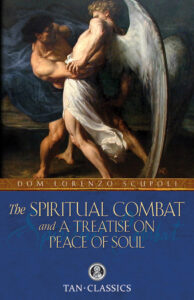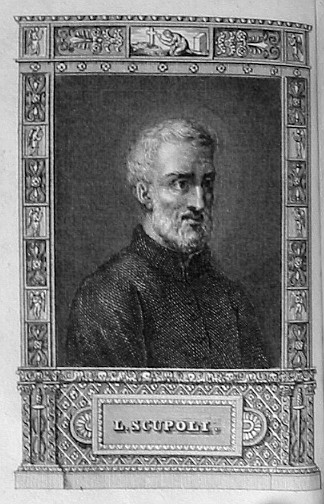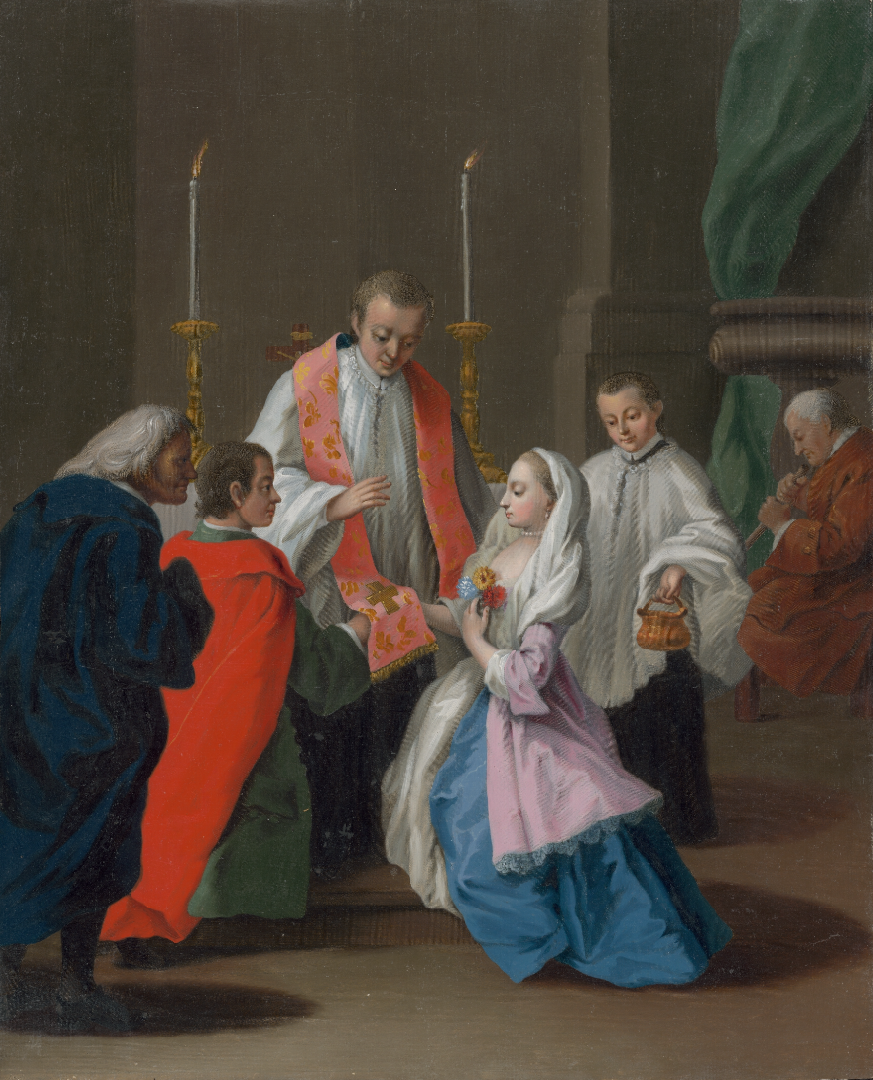Sensible devotion is sometimes produced by dispositions of our nature, sometimes by artifices of the devil, and sometimes by an influx of grace. You may discern its origin in a particular case by studying the effects; for if no amendment follows, you may well suspect the devil or your own infirm nature to be at the bottom of such devotion, particularly if it be accompanied by much consolation, complacency, or by any measure of self-esteem.
When, therefore, your heart rejoices in exultation and spiritual delight, be not oversolicitous to trace their origins; but at the same time, attribute no particular significance to them, and beware of inflating your opinion of self. Rather, be ever mindful of your own nothingness, and breaking asunder the fetters of earthly attachments—and even spiritual attractions—attach yourself to God alone, seeking always to obey the least dictate of His divine will. This method of conduct will change the very nature of the consolation you experience, and although it should first arise from a defective source, it will later prove most beneficial. Dryness, or spiritual aridity, proceeds from the following causes:
1. From the devil, who strives with satanic vigor to make us become negligent, to lead us from the path of perfection, and plunge us anew into the vanities of the world.
2. From ourselves, through our own faults, negligences and earthly attachments.
3. From the divine grace infused into our souls by the Holy Spirit, not only to wean us away from all that is not of God or tending to Him, but also that we may learn from experience that all things come from Him. Other reasons for such spiritual aridity are: to teach us to esteem His gifts more highly in the future, and show more humility and care in preserving them, and to unite us more closely to His divine Majesty by an entire renunciation of self, complete to the exclusion of spiritual comforts. For if our affections are centered on spiritual consolation, that heart which Our Lord would keep wholly for Himself is divided. The last reason to be assigned for such dryness may be the joy God derives from seeing us fight with all our strength, utilizing all His grace to best effect.
When, therefore, you find yourself oppressed with dryness and distaste for spiritual things, ascertain whether or not it is to be attributed to any fault of your own, and if so, amend it instantly, not so much with a view to regaining that sensible enjoyment, but in order to banish everything that is the least displeasing to God. If, however, after careful scrutiny, you can discover no such fault, be not concerned about recovering your sensible fervor; rather exert yourself in the acquisition of that perfect devotion which consists in perfect conformity to the will of God. However barren and insipid your usual exercises may seem, be resolute and persevering in your execution of them, drinking cheerfully the bitter cup the Heavenly Father has presented to you.
And if, besides this dryness which makes you almost insensible to Heavenly things, you labor under an oppressive cloud of spiritual darkness which makes you fearful, and ignorant of which way to turn, be not discouraged. Let nothing separate you from the Cross of Christ, and disdain all human consolation, vain and wretched as it is.
Be careful, moreover, not to divulge this affliction to anyone but your spiritual director, to whom it should be revealed not with a view to any alleviation, but in order to learn how to bear it in perfect resignation to the divine will. Offer not your Communions, prayers, or other devout exercises that you may be free of your cross, but that you may receive strength to exalt that cross forever to the honor and glory of Jesus crucified.
And if, from confusion of mind, you can neither pray nor meditate as usual, yet you must persist in those exercises with as little anxiety as possible, supplying for the defects of the mind the affection of the will. Employ vocal prayer, conversing both with yourself and your Saviour. Such a practice will have surprising effects, and it will afford you great consolation in your anxiety. On such occasions say to yourself: “Why art thou sad, O my soul? And why dost thou trouble me? Hope in God, for I will still give praise to him: the salvation of my countenance, and my God . . . Why, O Lord, hast thou retired afar off? Why dost thou slight us in our wants, in the time of trouble? . . . O! Do not thou utterly forsake me.” Psalms 41:6-7, 9:22 and 118:8
Call to mind the pious sentiments with which God inspired Sara, the wife of Tobias, in her affliction, and say with her in spirit and in word:
“My God, all who serve Thee know that if they are visited with trials of affliction in this life, they will be rewarded; if oppressed with affliction they shall be delivered: if punished by Thy justice, they hope in mercy. For Thou delightest not in seeing us perish; Thou sendest a calm after storms, and joy after mourning. O God of Israel, be Thy name forever blessed.” (Tob. 3:21-23)
Remember also thy Christ in the garden and on the Cross abandoned by Him Whose only beloved Son He was; carry your cross with Him and say from the bottom of your heart: “Not my will but thine be done.” Thus by uniting patience with prayer in the voluntary immolation of self to God, you will become truly devout. For, as I have said, true devotion consists in an eager and unswerving will to follow Christ, and to bear the cross at whatever time, in whatever way He shall decide; and it consists too in loving God because He is worthy of our love, and even in forfeiting the sweetness of God for the sake of God.
This article is taken from a chapter in The Spiritual Combat and Treatise on Peace of Soul by Dom Lorenzo Scupoli, which is available from TAN Books.









